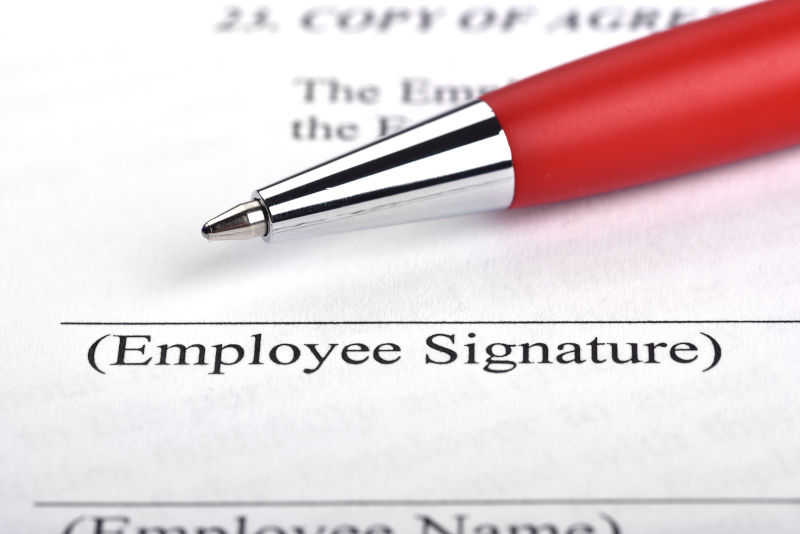No matter how long you have been employed, the law protects all employees from discrimination based on the following characteristics:
- age;
- disability;
- gender reassignment;
- marriage and civil partnership;
- pregnancy and maternity;
- race;
- religion or belief;
- sex; and
- sexual orientation.
Most of these have obvious meanings, but what types of beliefs are protected and how do you show that a belief you have, which may have led to you being treated unfairly or differently to others, is strong enough to deserve protection?
This question was raised in the recent employment tribunal case of Conisbee v Crossley Farms Ltd and others in which Mr Conisbee alleged that he had been discriminated against due to his belief in vegetarianism.

The tribunal considered 6 key tests an individual has to meet in order to show that their belief (whether that be vegetarianism, veganism or any other type of belief) is covered by the law.
-
The belief must be genuinely held.
Even if the belief itself is capable of being protected by the law, the individual must honestly hold that belief. In terms of veganism or vegetarianism, it goes without saying that the individual would need to be a vegan or follow a vegetarian diet. Not doing this or not doing it all the time would very likely mean that a tribunal would decide the individual did not really believe in veganism or vegetarianism.
-
It must be a belief, not an opinion or viewpoint.
There can be a fine line between establishing that you genuinely believe in something rather than simply just having a certain opinion on it. It needs to be an unshakeable belief and a matter of principle. In the Conisbee case, the tribunal said that Mr Conisbee’s statement that the world would be a better place if animals were not killed for food was only an opinion.
-
It must be worthy of respect in a democratic society and not conflict with the fundamental rights of others.
Part of being in a democratic society means that as well as individuals having the right to vote in elections, human rights are also protected, such as the right to life, the right to a fair hearing and the right to equality (everyone being treated the same).
A belief will not be protected if it would impact in a negative way on human rights.
The tribunal found that vegetarianism was capable of respect in a democratic society and did not impact on the rights of others. A belief in veganism would be considered the same way.
-
It must concern a weighty and substantial aspect of human life and behaviour.
The belief must be significant and be about people and what they do.
In relation to vegetarianism, the tribunal agreed with the employer’s view that vegetarianism was only about protecting the life of animals and fish and not about human life. The tribunal said that it was a lifestyle choice.
It is possible that veganism might be viewed differently. That is because veganism covers both not eating meat or using animal products under any circumstances.
-
The belief must have a certain level of cogency, seriousness, cohesion and importance.
This means that the reasons for the belief must be clear and consistent. In relation to this, the tribunal decided that people have different reasons for being vegetarian including health, diet, lifestyle, personal taste and animal welfare.
The tribunal found this was different to veganism as vegans did not accept eating meat, fish or dairy products under any circumstances and believed doing so should not be part of a civilised (educated) society.
-
The belief must have a similar status or cogency (clarity) to religious beliefs
This means it needs to be viewed as being on the same level as a belief in a particular faith or religion such as Hinduism, Christianity or Islam.
The tribunal found that a belief in vegetarianism did not have the same status as a religious belief.
Vegetarianism not a protected belief?
Taking into account all of the above, the tribunal decided that vegetarianism was not a protected belief. As such it was not possible for Mr Conisbee to bring a claim for discrimination due to any alleged unfair treatment as a result of him holding that belief.
However, decisions of employment tribunals do not have to be followed by other employment tribunals. Only decisions of the Employment Appeal Tribunal (or the Court of Appeal and Supreme Court) have to be followed. This means that the decision in Mr Conisbee’s case is not binding on other employment tribunals and it is possible that a different tribunal in a different case might come to a different decision.
Is veganism a protected belief?
The case was not about veganism and although the tribunal compared vegetarianism to veganism as part of its reasons, it did not make any decision on whether veganism is capable of being a protected belief.
But from what it did say, it seems that an individual may find it easier to claim that veganism is a protected belief.
If a belief is protected, what claims can an individual bring?
There are different types of discrimination claims an individual can bring relating to a belief:
- Direct discrimination
- Indirect discrimination
- Harassment
- Victimisation
For an explanation as to what these terms mean, see Discrimination Claims.
Examples
Direct Discrimination
Amol is a vegan. He applies for a job as an Accounts Assistant. During his interview, his belief in veganism comes up. The manager interviewing Amol enjoys shooting pheasants and grouse which he eats. He thinks he’s unlikely to get on with Amol given Amol’s belief in veganism and does not offer him the job. If Amol can establish that veganism is a protected belief, not employing him because of his belief, is direct discrimination.
Indirect Discrimination
Diana is a vegan. She is an Account Manager. Her employer requires all Account Managers to visit their clients once every 2 months to improve client care. If they do not visit the client when they should, they are not paid a bonus. Diana is given a new client – an abattoir (sometimes referred to as a slaughterhouse). Diana does not do the visit as her client’s office is above the abattoir and she could not face going due to her beliefs. As a result, she does not get a bonus. If Diana can establish that veganism is a protected belief, not paying the bonus could amount to indirect discrimination (as could requiring her to go to the abattoir and even allocating that client to her).
Harassment
Tom is a vegan. Tom’s workmates find this funny and are constantly putting meat products in his packed lunch and adding cow’s milk to his coffee (instead of his dairy-free milk he brings to work). If Tom can establish that veganism is a protected belief, Tom is likely to have a harassment claim against both his workmates and his employer.
Victimisation
Tom (from the previous example) raises a grievance about his workmates’ behaviour. After that his boss views him as a nuisance and does not consider him for promotion. If Tom can establish veganism is a protected belief, Tom is likely to have a victimisation claim.
For more information on the different types of claim and how compensation is worked out, see Discrimination Claims.
Other claims
Where an employee is discriminated against due to a belief, depending on what form the discrimination takes, they might also have the right to claim Constructive Dismissal (if they resign due to at least in part the discrimination) and Unfair Dismissal.
All claims must be brought within the correct time limits (usually 3 months from the date of the act of discrimination, dismissal or resignation) and the ACAS Early Conciliation process must be followed.
Contact us
With an honest and ethical approach to law, at Truth Legal you will have access to our specialist team of lawyers to help you with all your employment law matters. Our Head of Employment Law is Navya Shekhar, an employment law solicitor with over 10 years’ experience.
If you think you have been discriminated against due to a belief, or any other protected characteristic – call us on 01423 788538 or contact us here.
Further Reading
From one of the UK’s most read legal blogs.










